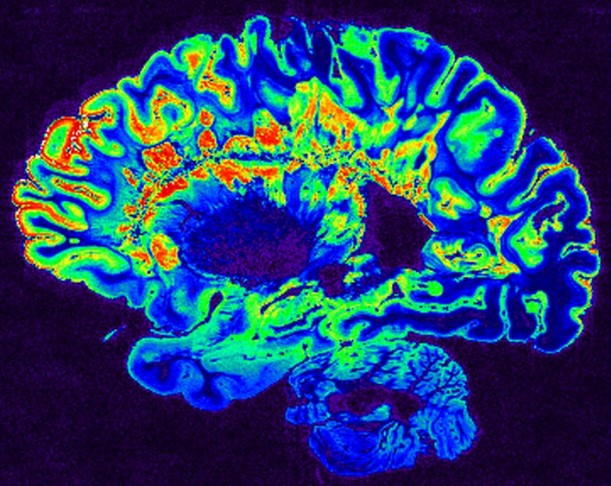The field of vaccination has been enhanced significantly by the successful development of two approved vaccines based on messenger RNA (mRNA) technologies. Prior to the COVID-19 pandemic that spread from China in 2019 to the rest of the world in 2020, no mRNA vaccine had ever been approved for use against any disease in humans. However, in late 2020 and early 2021, two mRNA vaccines (developed independently by pharmaceutical and biotechnology companies Pfizer/BioNTech and Moderna) to prevent COVID-19 were approved for emergency use in the United States, Canada, the European Union, and elsewhere. Now, mRNA vaccination strategies are being fast-tracked to combat other diseases. Most notably, researchers have designed an mRNA vaccine to treat and prevent acute disseminated encephalomyelitis (ADEM)—an autoimmune disease similar to multiple sclerosis—in mice. In experimental mouse models, this vaccine was able to prevent encephalomyelitis, or inflammation of the brain and spinal cord. In addition, in mice with early-stage ADEM, the vaccine lessened the onset and severity of the disease and halted disease progression, allowing restoration of motor function. See also: Inflammation; Multiple sclerosis; Ribonucleic acid (RNA); Searching for a COVID-19 vaccine; Vaccination

Briefly, mRNA vaccines work by enabling the body's immune cells to produce a protein (or protein component) that triggers an immune response. This method is in contrast to that of traditional or conventional vaccines, which insert a weakened or inactivated version of the disease-causing pathogen into the body. In both types of vaccines (mRNA and traditional), the subsequent immune response leads to antibody production, which prevents infection from the pathogenic agent. Two significant advantages, though, favor mRNA vaccines. First, modern technologies have simplified the processes used to develop mRNA vaccines, allowing technological platforms to potentially create a vaccine for any infectious disease by inserting the proper mRNA sequence for that particular disease. Second, mRNA vaccines can generate a stronger type of immunity; that is, these vaccines are more potent because they stimulate the immune system to make both antibodies and natural killer T cells—a unique and distinct subset of immune cells, called T lymphocytes, that influence and regulate immune and inflammatory responses. See also: Antibody; Immunity; Immunology; Natural killer T cells
Because of the potentially high efficiency of mRNA vaccines, investigators have applied mRNA vaccine technologies to an area of immune dysfunction that has been difficult to treat and prevent—namely, autoimmune diseases. Autoimmunity is the occurrence of an immune response within an organism to one of its own tissues—that is, a response to a self-constituent. As a result, failure of immune tolerance to self-constituents triggers an autoimmune response that is frequently associated with an autoimmune disease, such as systemic lupus erythematosus, myasthenia gravis, celiac disease, or multiple sclerosis. See also: Acquired immunological tolerance; Autoimmunity
Multiple sclerosis is considered to be an autoimmune disease because the immune system attacks and destroys myelin, which is the insulating material around nerve fibers (axons) and which enhances the conduction of nerve impulses. In individuals with multiple sclerosis, an inflammatory cascade is initiated that leads to breakdown of the blood-brain barrier, which is an endothelial-cell layer that normally prevents large molecules or cells from entering the central nervous system. In multiple sclerosis, however, T cells, inflammatory cells, and signaling molecules known as cytokines enter the central nervous system, damaging both myelin and the axons themselves. Following this damage, the symptoms of multiple sclerosis appear progressively, including muscle weakness, lack of coordination, memory loss, mood disorders, and the inability to control bladder and bowel functions. See also: Central nervous system; Cytokine; Nerve; Neuron
Neuromuscular dysfunction in multiple sclerosis patients often progresses to a highly debilitating state. Furthermore, treatment is difficult and often inadequate. Multiple sclerosis is typically treated as a chronic disease, utilizing various drugs that attempt to lessen symptoms or slow progression of the disease. Therefore, the creation of an mRNA vaccine against ADEM, which is used to model multiple sclerosis in animals, is a promising development. Most significantly, the experimental mRNA vaccine controlled autoreactive T cells in mouse models without inducing systemic immune suppression or inflammation. As such, the vaccine blocked all clinical signs of encephalomyelitis in mouse models and prevented ADEM progression in mice with established early signs of disease. If these results are sustained in further scientific trials in mice, and if they continue to be safe and efficacious, scientists hope that the mRNA vaccine could eventually be tested on human patients suffering from multiple sclerosis.





